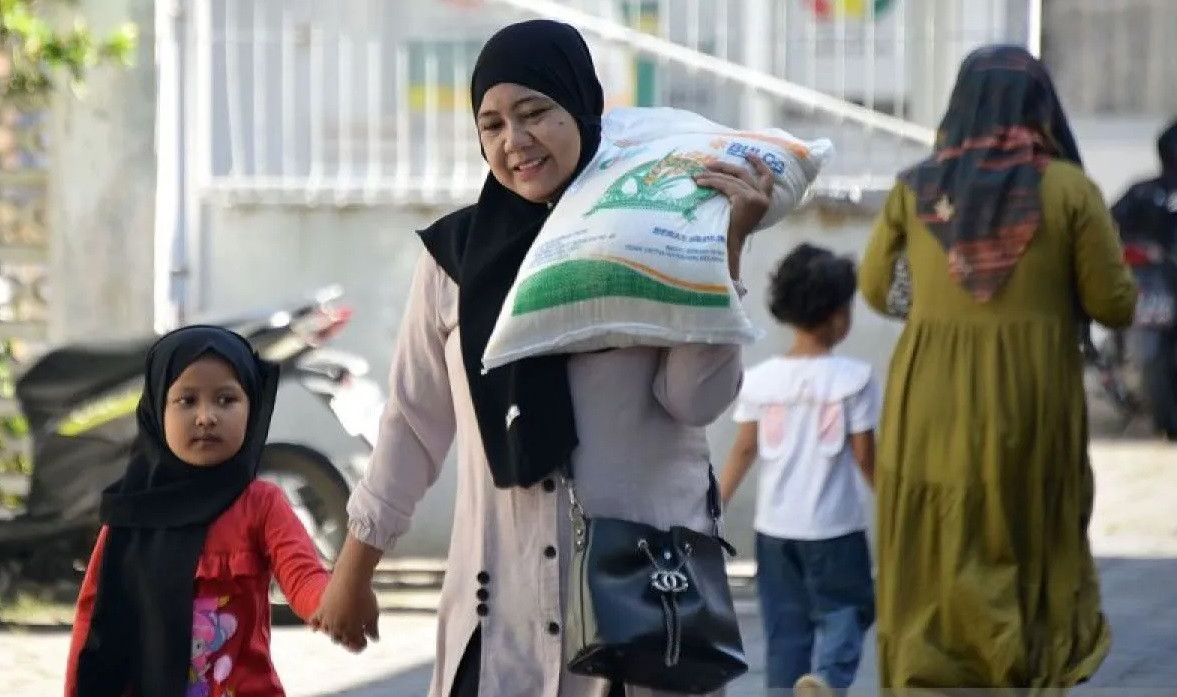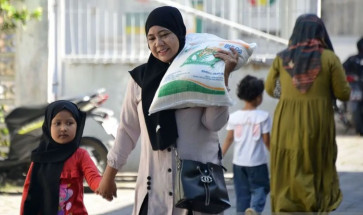Rethinking food supplies to meet demand in urban areas
History has shown that even milder El Niño events can have far-reaching implications on food supplies in the country.
Change Size
 Staple support: A woman and her daughter leave the post office in Banda Aceh, Aceh, on May 12, 2023 carrying rice aid. The government will continue distributing free rice to 21.35 million families until the end of the year, with each receiving 10 kilograms per month. (Antara/Ampelsa)
Staple support: A woman and her daughter leave the post office in Banda Aceh, Aceh, on May 12, 2023 carrying rice aid. The government will continue distributing free rice to 21.35 million families until the end of the year, with each receiving 10 kilograms per month. (Antara/Ampelsa)
Indonesia has witnessed remarkable growth in urban population over the past decade. As of 2022, the country’s population was estimated at 273 million people, of whom 55 percent reside in urban areas.
The high population density in urban areas always amplifies the challenge of meeting the rapid growth of food demand. With limited resources available for agriculture, urban areas’ dependency on external food production centers becomes more pronounced.
Jakarta provides a prominent example of its struggles to fulfill its food demand. According to official data, Jakarta can only provide a small percentage of its total food demand. The city can meet merely 1.2 percent of its demand for rice, 0.5 percent of its demand for vegetables and 19.6 percent of its demand for fruits through local production within its territory. While it is no surprise, to meet its food demand, Jakarta heavily relies on food supplies from production centers that vary depending on the commodity. Smaller quantities of food such as fruits or vegetables are also obtained from peri-urban areas like Bogor.
Recently, the alarming specter of El Niño has loomed large over Indonesia, with an expected peak occurring between August and October 2023. As the rainfall dwindles, crop failures become an all-too-familiar tragedy, leading to reduced agricultural yields and compromised food production. The impact extends far beyond the borders of the countryside, encroaching into the heart of Indonesia's vibrant urban centers.
While the Indonesian Meteorological, Climatological and Geophysical Agency (BMKG) has forecast a weak-to-moderate El Niño for this year, it is imperative that holistic approaches with a sense of preparedness and dedication are taken. History has shown that even comparatively mild El Niño events can have far-reaching implications.
The Food Crops Directorate General’s report indicates that from 1989 to 2016, El Niño resulted in a drought that affected 850,000 hectares of rice crop areas. This led to a significant 5 percent decrease in rice production, which not only created instability in rice supply in the markets but also increased prices. The case is only for rice, leaving out other vital food commodities that may present even more intricate challenges.

















